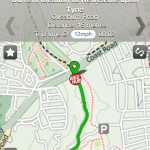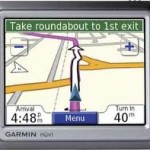- October 1st, 2010
- Jackson Parker
Awesome New GPS Devices – Snow Goggles with a GPS Dashboard
 The World’s First Direct-to-Eye Communications Display in a Snow Goggle, Integrating GPS Technology, State-of-the-Art Sensors, and Superior Optics: Rincon/Zeal’s Transcend Snow Goggle. Described as the most technologically advanced goggle in the world, it features advanced optics and Head Mounted Display technology, showing real-time data in a heads up display inside the goggles themselves. The Transcend GPS-enabled goggles, available from Zeal Optics in Fall 2010, features GPS & vertical odometer technologies, and provides real-time access to performance statistics including speed, altitude, temperature, and time.
The World’s First Direct-to-Eye Communications Display in a Snow Goggle, Integrating GPS Technology, State-of-the-Art Sensors, and Superior Optics: Rincon/Zeal’s Transcend Snow Goggle. Described as the most technologically advanced goggle in the world, it features advanced optics and Head Mounted Display technology, showing real-time data in a heads up display inside the goggles themselves. The Transcend GPS-enabled goggles, available from Zeal Optics in Fall 2010, features GPS & vertical odometer technologies, and provides real-time access to performance statistics including speed, altitude, temperature, and time.
Skiers, snowboarders and any other action sports lover are going to love this new GPS device – GPS enabled goggles by Recon. The ability to see video of what you just did is one thing, but to see it on an interactive map that displays speed and elevation is something that has never been done before.
This new snowboard technology will in essence be a ski and snowboard goggle where you view your cellphone screen, your speed and altitude on a small display on the inside of the goggle lens. The GPS system enabled goggles will feature a 15mm diagonal micro display will provide you with your real-time speed, jump hang-time, vertical gain/loss, altitude, temperature and will even include a stopwatch and GPS tracking capability for rescue situations – which is a great safety perk.




























